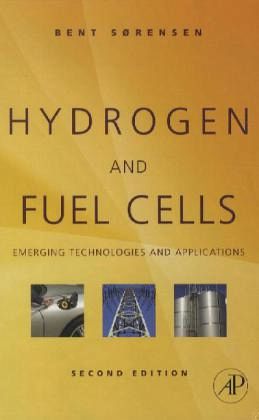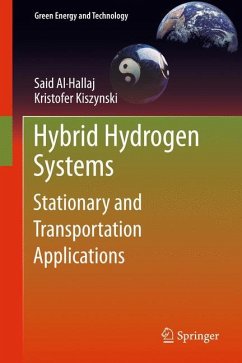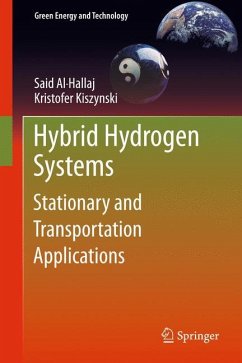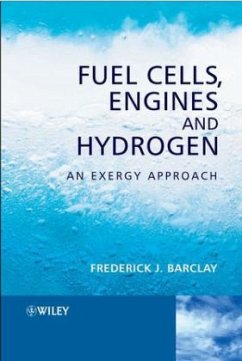
Hydrogen and Fuel Cells
Emerging Technologies and Applications
Versandkostenfrei!
Versandfertig in 6-10 Tagen
55,99 €
inkl. MwSt.
Weitere Ausgaben:

PAYBACK Punkte
28 °P sammeln!
A hydrogen economy, in which this one gas provides the source of all energy needs, is often touted as the long-term solution to the environmental and security problems associated with fossil fuels. However, before hydrogen can be used as fuel on a global scale we must establish cost effective means of producing, storing, and distributing the gas, develop cost efficient technologies for converting hydrogen to electricity (e.g. fuel cells), and creating the infrastructure to support all this. Sorensen is the only text available that provides up to date coverage of all these issues at a level app...
A hydrogen economy, in which this one gas provides the source of all energy needs, is often touted as the long-term solution to the environmental and security problems associated with fossil fuels. However, before hydrogen can be used as fuel on a global scale we must establish cost effective means of producing, storing, and distributing the gas, develop cost efficient technologies for converting hydrogen to electricity (e.g. fuel cells), and creating the infrastructure to support all this. Sorensen is the only text available that provides up to date coverage of all these issues at a level appropriate for the technical reader.
The book not only describes the "how" and "where" aspects of hydrogen fuels cells usage, but also the obstacles and benefits of its use, as well as the social implications (both economically and environmental). Written by a world-renowned researcher in energy systems, this thoroughly illustrated and cross-referenced book is an excellent reference for researchers, professionals and students in the field of renewable energy.
The book not only describes the "how" and "where" aspects of hydrogen fuels cells usage, but also the obstacles and benefits of its use, as well as the social implications (both economically and environmental). Written by a world-renowned researcher in energy systems, this thoroughly illustrated and cross-referenced book is an excellent reference for researchers, professionals and students in the field of renewable energy.













